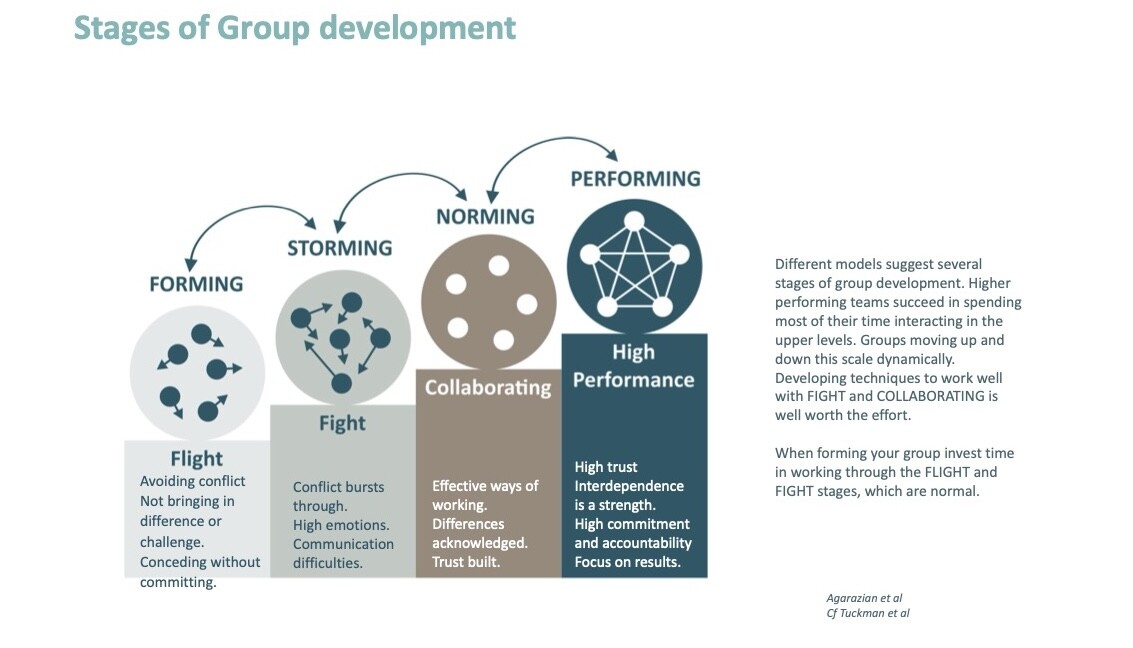Too many Executive Leadership Teams and University Executive Boards are bogged down in operational detail and statutory compliance. We examine the critical risks of a formal-meeting culture – including the failure of challenge highlighted at Dundee University, and provide six steps to build a high-performing, whole-organisation team.
Is your Executive Leadership Team a ‘team’ or just a meeting? How to move beyond the agenda


Life in Higher Education – or any organisation – seems to get busier, faster, and less predictable every year. The time Executive Leadership Teams have for reflection, relationship building, and understanding complexity is precious and often squeezed out by mandatory governance.
As one Vice-Chancellor recently shared with me, “There is so much formal business to get through, we never have time to think, or be together.”
When a leadership group’s calendar is perpetually locked with statutory meetings to monitor performance, review papers, and rubber-stamp policy, they risk missing out on something critical: genuine team collaboration.
When Team Two Takes Over
When senior leaders never meet as a genuine Team One (ie focusing on the organisation as a whole), to genuinely talk, think things through, or build relationships, they tend to show up to meetings wearing their Team Two hats: representing the self-interest of their individual departments or silos.
They will dutifully contribute to the business at hand, but they may not see the value of going further, of having the difficult conversations that lead to the best long-term outcomes.
Effective teams collaborate well, and to do that, they must learn how to handle conflict and challenge safely, enabling them to hold conflicting perspectives and find the best ‘least-worst’ way forward.
This learning process is a difficult but essential part of the Storming phase of team development (Tuckman/Agazarian et al). It requires trust, appreciation, patience, and understanding — qualities that simply won’t magically occur in the blank lines between an overly committed meeting agenda. If your agenda is full until next quarter and your team hasn’t done that work, that could be a significant risk.

Case Study: The Cost of Discouraging Challenge
The 2025 Gillies report into the financial collapse of Dundee University highlighted a major contributor to their calamity: a “culture in which challenge was actively discouraged.”
Professor Gillies found serious failures in financial governance that were amplified by low psychological safety. The data was all there, but nobody was questioning the financial information they were given because, her report found, there was no culture of constructive challenge at executive or court level, and dissent was routinely shut down.
Culture has an amplifying effect. Without psychological safety, healthy challenge simply cannot thrive. We would guess that Dundee’s senior group met regularly but were not a genuine team. The risk of groupthink and critical oversight failures is significantly higher when difficult conversations are systematically avoided.
Learning from Governance: Mandating Robust Challenge
To find a process-based solution, my co-director Katharine shared an interesting perspective from her work supporting school governance.
Governing bodies often have very structured agendas and formal duties to work through during the cycle of the academic year. Building relationships is challenging when most members are volunteers and so have less time. This led to a very helpful solution: the role of governors is defined in crystal clear terms and includes a requirement to provide robust challenge to their executive team.
The challenge is not on operational details, but disciplined questions about process, validity, implications, and options:
- “What steps have you taken?”
- “When will you review this?”
- “What are the consequences?”
Crucially, these challenges are minuted so the school can prove to Ofsted (the regulator) that the governing body is fulfilling its role appropriately. This process enables the desired challenges.
Leadership teams can learn from this approach.
6 Steps to Shift Your Group from a Meeting to a Team
To shift from being a formal meeting to being a high-performing team — and to avoid the consequences of missed challenge like what happened at Dundee where difficult conversations were avoided — adopt a clear process for enabling robust, effective conversation.
Here’s a checklist for your institution:
- Create space and do the work
Meet as a team for more than the statutory sessions. Don’t just socialise; use this time to problem-solve, get into strategic context, and deep-dive on specific issues. - Define clear expectations
Clearly define the responsibilities of your leadership team: strategic oversight, rigorous challenge, critical decision making — not just statutory compliance nor operational management. - Build psychological safety
Actively work on team trust. Welcome questions and concerns, model vulnerability, and take time out of meetings to do group-based developmental work. - Mandate equal airtime
Facilitate meetings to ensure every voice is heard, particularly those from non-traditional or quieter domains. - Think whole-organisation
Act as one group, not a collection of individuals. Leaders must climb out of their silos and self-interest, ready to make sacrifices for the health of the institution if needed. - Record challenges
Record the substantive challenges and questions raised (not just actions and decisions). This demonstrates your robustness and makes the process of challenge visible and auditable.
Which of these steps could help your team move from pure formality to genuine, high-stakes conversation?
At ThenSomehow we help universities and other HE organisations build emotional literacy, increase empathy, and help you see the world differently, giving you practical tools to shift the stuff that’s stuck.
If you’d like to discuss how we can help your organisation develop leaders and perform better, get in touch here.
This article was first published on LinkedIn on October 16th 2025.